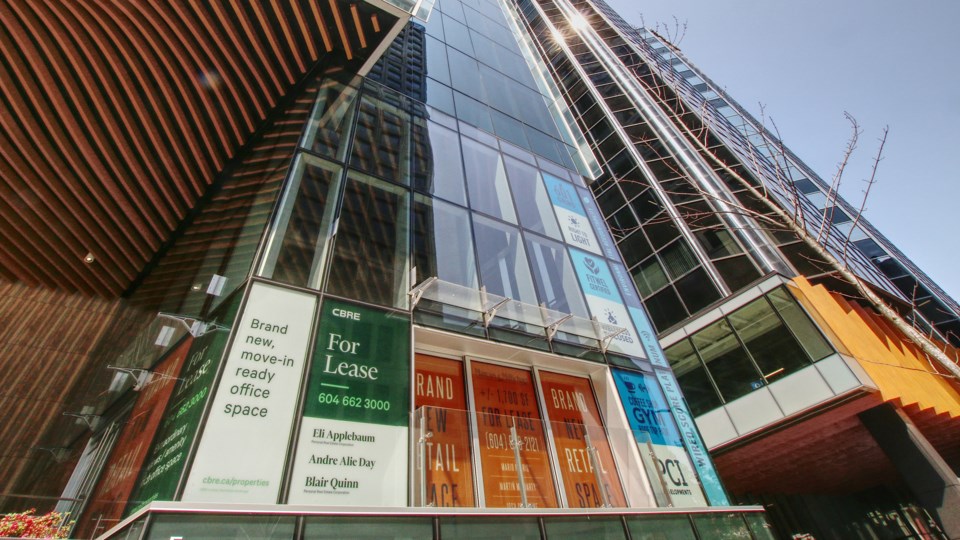As companies grow tired of endless Zoom calls, employee attendance is becoming a major factor in office-leasing decisions.
For every additional day that the majority of employees are in the office, companies are 10 per cent more likely to renew their lease, according to a new report from commercial real estate agency Colliers.
Companies are most likely to retain the same square footage when employees are in the office four days a week, said an Aug. 15 report that examines decision-making in office real estate.
John Duda, Colliers’ president of real estate management services for Canada, said that this is the “magic number” where it becomes impractical to reduce space.
“There's still many, many tenants trying to figure out what they’re going to do with hybrid. That conversation has been taking a long time to resolve and it will continue for the next 18 months or so,” he said.
Metro Vancouver’s office vacancy reached 7.4 per cent in the second quarter of 2023, a five-year high. Despite this rise, the region’s vacancy rate remains one of the lowest among Canada’s major markets, according to a July 4 Vancouver office market report from Colliers.
“I look back to what happened pre-pandemic with a number of large global firms like IBM where they had massive work-from-home programs. It took them three to four years to figure out they had a productivity problem,” he said.
“It was a slow trickle. It didn't just all of a sudden change everything and productivity just dropped overnight … what I got from that was you slowly become disengaged.”
Office vacancy is expected to reach 15 per cent nationally by 2024 as companies continue to adjust to the hybrid model, according to the Colliers report.
The number of companies studied that have finalized their office plans rose from 49 per cent to 55 per cent between the fourth quarter of 2022 and the second quarter of 2023. This indicates that companies are moving beyond the “wait-and-see approach,” according to the report.
Meanwhile, the average number of days mandated in the office grew from 2.5 days to three days depending on the Canadian market.
Parking and access to public transit were rated as the biggest factors for companies when looking at a new space. Amenities related to environmental, social and governance (ESG) values were less important.
Exactly 29 per cent of companies surveyed expressed interest in ESG amenities, said Duda.
“The level of importance today is actually quite small,” he said. “Of that 29 per cent, they were only willing to pay an extra eight per cent in terms of total rent to have a building that was, say, carbon neutral. There's an awareness, but it is not grounded into the industry yet.”



